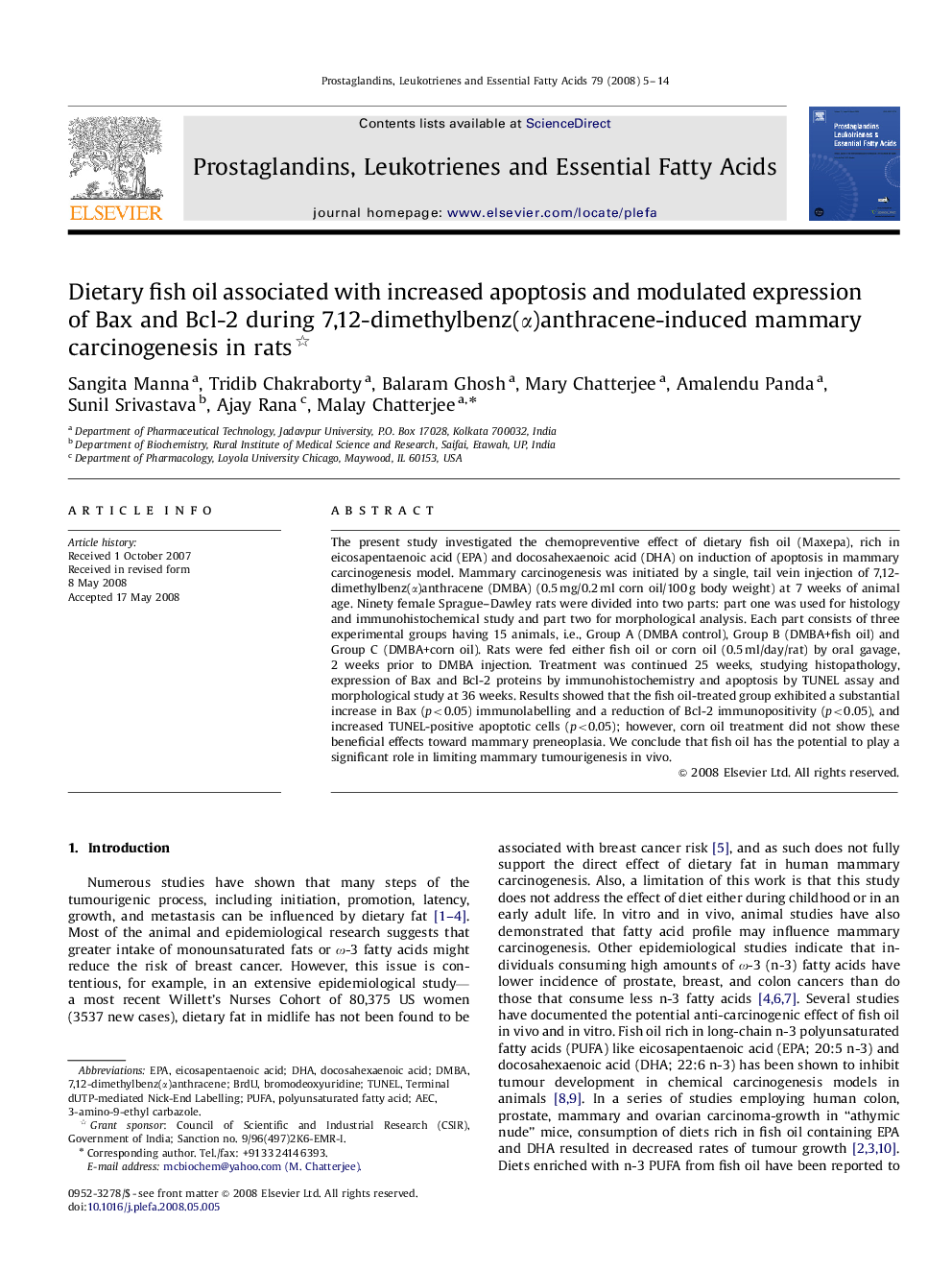| Article ID | Journal | Published Year | Pages | File Type |
|---|---|---|---|---|
| 2778150 | Prostaglandins, Leukotrienes and Essential Fatty Acids (PLEFA) | 2008 | 10 Pages |
The present study investigated the chemopreventive effect of dietary fish oil (Maxepa), rich in eicosapentaenoic acid (EPA) and docosahexaenoic acid (DHA) on induction of apoptosis in mammary carcinogenesis model. Mammary carcinogenesis was initiated by a single, tail vein injection of 7,12-dimethylbenz(α)anthracene (DMBA) (0.5 mg/0.2 ml corn oil/100 g body weight) at 7 weeks of animal age. Ninety female Sprague–Dawley rats were divided into two parts: part one was used for histology and immunohistochemical study and part two for morphological analysis. Each part consists of three experimental groups having 15 animals, i.e., Group A (DMBA control), Group B (DMBA+fish oil) and Group C (DMBA+corn oil). Rats were fed either fish oil or corn oil (0.5 ml/day/rat) by oral gavage, 2 weeks prior to DMBA injection. Treatment was continued 25 weeks, studying histopathology, expression of Bax and Bcl-2 proteins by immunohistochemistry and apoptosis by TUNEL assay and morphological study at 36 weeks. Results showed that the fish oil-treated group exhibited a substantial increase in Bax (p<0.05) immunolabelling and a reduction of Bcl-2 immunopositivity (p<0.05), and increased TUNEL-positive apoptotic cells (p<0.05); however, corn oil treatment did not show these beneficial effects toward mammary preneoplasia. We conclude that fish oil has the potential to play a significant role in limiting mammary tumourigenesis in vivo.
